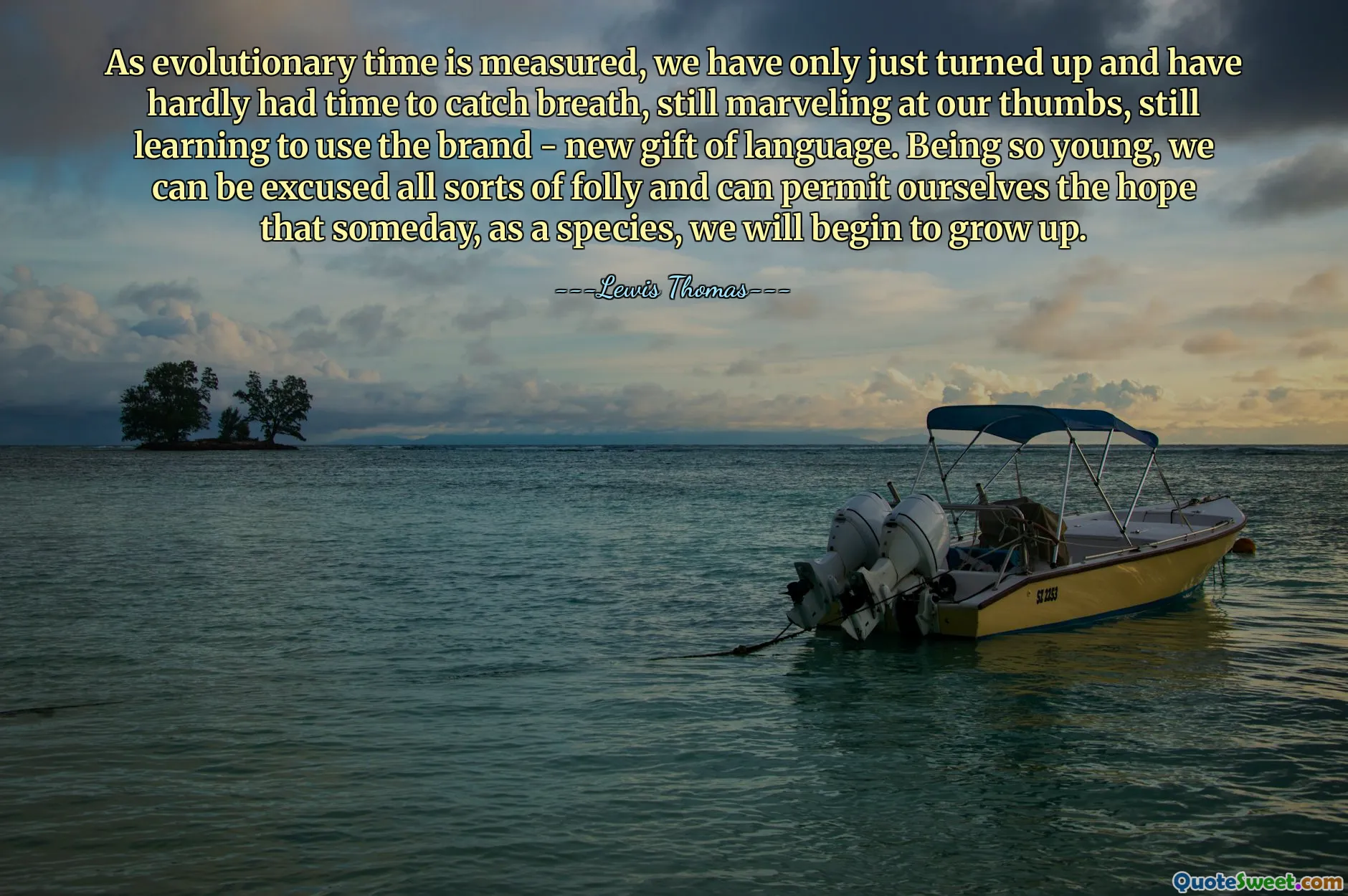
As evolutionary time is measured, we have only just turned up and have hardly had time to catch breath, still marveling at our thumbs, still learning to use the brand - new gift of language. Being so young, we can be excused all sorts of folly and can permit ourselves the hope that someday, as a species, we will begin to grow up.
This quote poetically addresses the relative youth of humankind in the vast timeline of evolution. Although we might view ourselves as sophisticated and dominant beings today, Lewis Thomas reminds us that, in the grand scheme of evolutionary history, we are mere newcomers. The imagery of marveling at our own thumbs and grappling with the newfound power of language underlines the fact that our capabilities, though extraordinary, are still emerging. This perspective invites humility, suggesting that our mistakes and follies are not just inevitable but forgivable, given our species' nascent stage.
Moreover, the quote encourages hope and aspiration. It implies that our journey toward maturity—as a species and perhaps as stewards of the planet—is ongoing. Our evolution isn’t limited to biology alone but extends to cultural, intellectual, and ethical growth. The phrase "we will begin to grow up" is a call for self-awareness and responsibility, pushing us beyond primitive instincts or shortsighted decisions toward a future where humanity acts with greater wisdom and foresight.
The reflection resonates deeply in contemporary times, with challenges such as climate change, technological dilemmas, and social fragmentation underscoring the need for collective growth. It suggests that recognizing our youthful status should not lead to despair but to a constructive mindset, embracing the opportunity to develop more thoughtfully and harmoniously. Ultimately, this quote is both a humbling reminder and a motivational beacon, urging us to appreciate how far we’ve come while striving for a more enlightened tomorrow.











